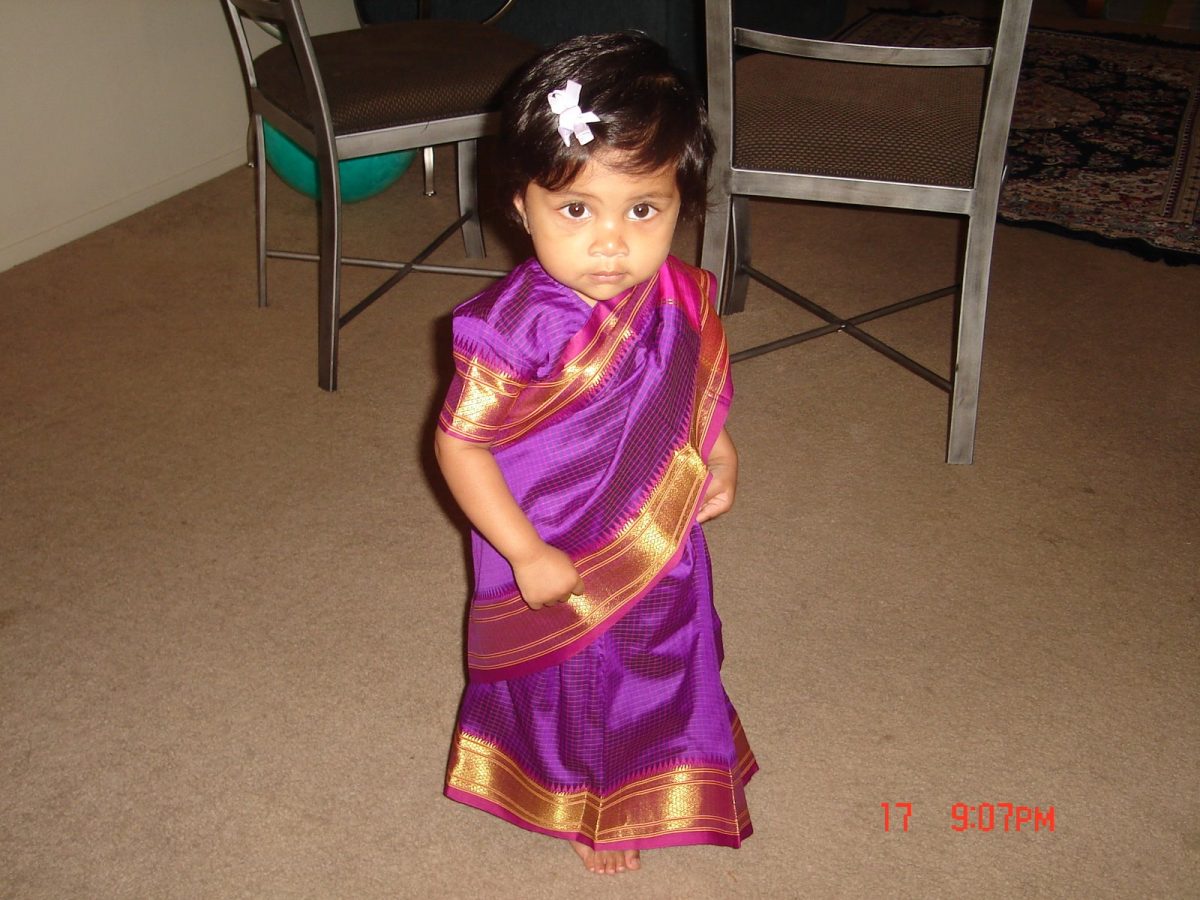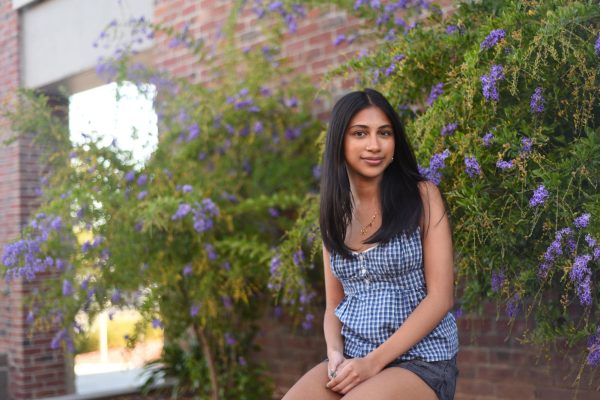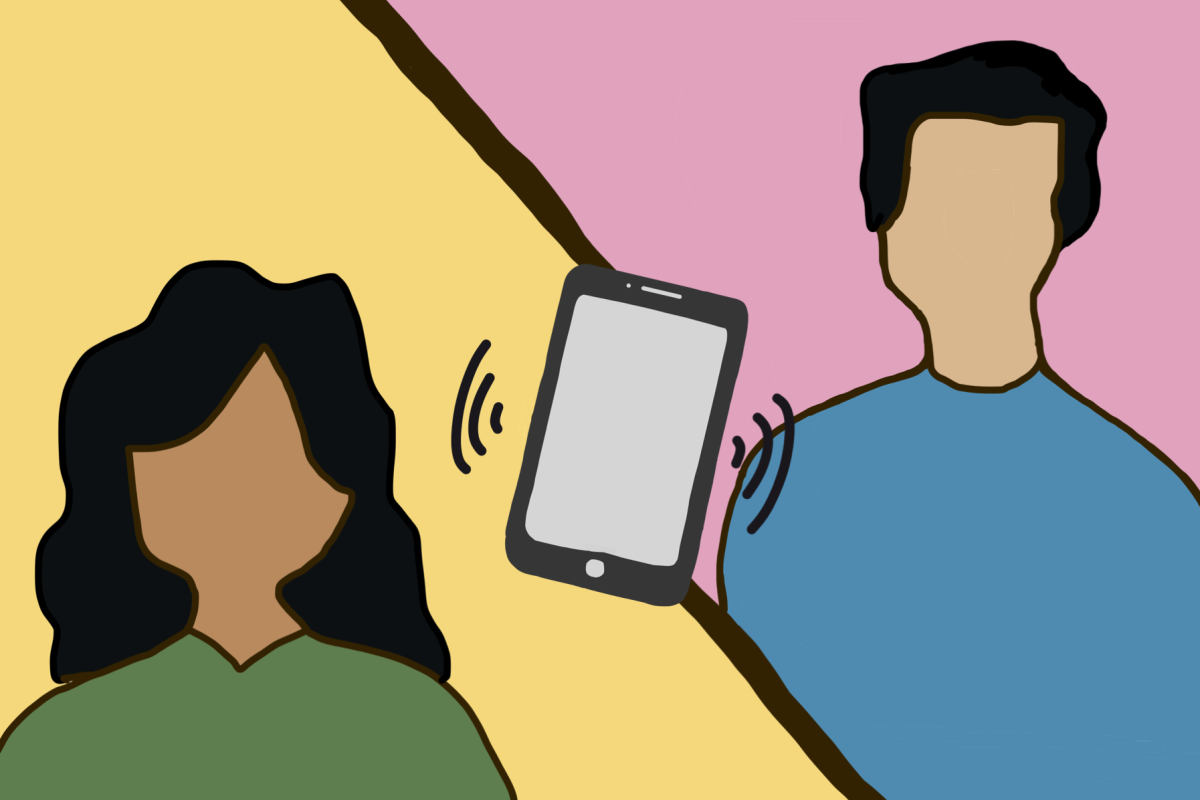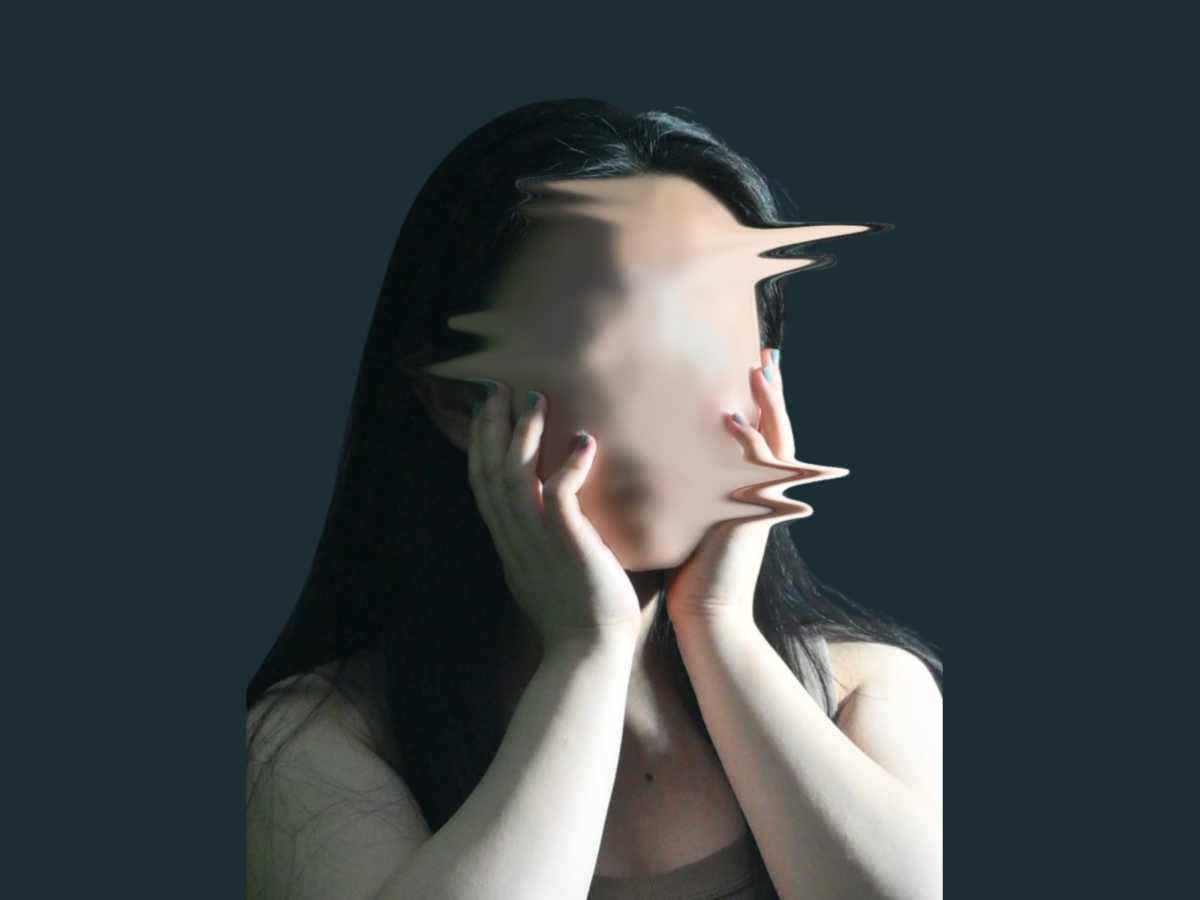Curled up in my cozy, third grade classroom, my legs criss-crossed on my little plastic chair, I scrutinized the colorful array of crayons before me. I had the most important decision of my life in front of me: what color would I use to outline my heart map? The construction paper in front of me had a crudely stenciled heart sectioned out with the most important things in my life — my parents, my little sister, my sparkly pink sneakers.
In front of me, my third grade teacher sketched out a series of harsh lines on the whiteboard in purple Expo: a cross. Calling us to attention, he suggested using the cross to symbolize religion within the heart map. Religion had never crossed my mind, much less enough to warrant a part of my heart, so I didn’t add it or give it a second thought.
An hour later, while walking with my best friend to the lunch line, she questioned why I hadn’t added religion. And for the first time, religion felt like a physical presence. Previously, it had been a hazy idea in the back of my mind. I’d watch TV show characters pray, sit in church or whisper vague God-given platitudes. It all seemed so distant, so ordinary. If it were so important to my friends that it deserved a spot in the most sacred of places — their third grade art project — then it had to mean something big, something revolutionary. All of a sudden, it felt personal and close. So why didn’t it mean anything to me?
After school that day, I questioned my dad. “Why aren’t we religious?” His answer was vague: “We’re just not.” In the ever-curious, relentless spirit that only elementary schoolers have, that response just wasn’t enough for me. And so, my endless cycle of questioning religion and its place in my life began that day and continued for years afterward.
My dad grew up in an uber-religious household in a small city in India. When his older brother turned to atheism, he followed suit and denounced Hinduism. My mother’s household was far less religious, yet Hinduism remained a large part of her childhood. Every puja and religious event she was pushed into left her feeling increasingly disillusioned. Meeting my dad in college was the final straw: she, too, left religion behind and they chose to raise me and my sister as atheists.

For a long time, after I became aware of my atheism, I hated it. Growing up Indian American amidst Cupertino’s large Desi population, not being Hindu felt like a barrier that disconnected me from truly engaging in the community. At the various festivals we attended, my family would stand off to the side as the religious proceedings went on. I didn’t know any of the ceremonies, any of the prayers, any of the mythology. My parents would drag me from one puja to the next, answering my questions of “What is this?” with “You don’t really need to know.” I would sit on the floor as candles were waved in front of my face, food was placed before me and lengthy chants in Sanskrit were said to me. All the while, I felt discomfited and confused.
Coupled with not speaking Hindi or Marathi, I didn’t feel like a “real Indian,” at least not in the ways my friends were. They discussed their favorite Bollywood movies and songs at length, recounted their favorite Indian folktales or imitated their parents’ Hindi in exaggerated accents. Not only was there a physical barrier, but a mental one was forming too. Religion seemed to tie the Indian experience together, and I was the knot that just couldn’t fit.
The human connection that religion seemed to bring felt like it was the solution to all of my issues. Though unrealistic, it suddenly seemed to me that if I were religious, I would always have a community. In my mind, religion became the band-aid solution: becoming religious meant everything would change. The media I consumed intensified this idea: in the Percy Jackson book series, Percy found his community when he realized he was a demi-god and embraced Greek mythology. Even Mormonism seemed tempting — though undeniably cultish, it was a close-knit community. The idea of religion began bordering on obsession as I researched for hours, scrolling through Wikipedia as I romanticized the idea of going to church or praying to some unnamed deity.
However, in eighth grade, whilst struggling with depression, religion became less of a community ideal to me and more of a solvent. To me, religion proclaimed a haven at the end of a treacherous path: no matter how bad it was right now, it would all be okay at the end. Someone was looking out for you. At my lowest point, this felt so comforting. There were times when I felt like I had nobody — the idea that some mythical figure was protecting me and guiding me felt like a warm hug. Whatever I was going through right now, my life couldn’t possibly end like this. I trusted that divine intervention would take its course and change everything.

And yet, it didn’t. Divine intervention wasn’t coming and high school was looming. My anxiety wasn’t dissipating, and now I was facing six hundred new faces, a brand new school and a course load that piled up by the day. I needed to take charge — wistfully waiting wasn’t going to change what was ahead of me. It wasn’t until I started working on myself through therapy and attempting to make real change that I saw results in my emotional control and volatility. Taking active steps allowed me to move past social anxiety and expand my friendship circle. My mindset shifted to one where I had control and autonomy. No one else was doing anything for me. I chose to do things I hated — I joined Speech despite a fear of public speaking, I joined a literary magazine despite a fear of sharing my writing — and saw my life change as a result. I became more comfortable not only with public speaking, but with day-to-day conversation. Teachers and fellow writers complimented my writing and I received valuable feedback, pushing me to improve. If I had followed what I considered a deity guiding me, my choices not my own, then I wouldn’t have done those activities.
My mantra for life has become that it doesn’t wait. I could sit back and wait for things to change and trust that everything would be okay — or I could make it okay. My passivity in idealizing religion as the solution to all my issues denied that I was the one in charge and that I had all the solutions. Relying on religion to act as a connection to my Indian roots ignores my own authority. In a diverse, ever-shifting community, it’s up to me to make change — it’s not going to sit around and wait for me. While, yes, I am human and therefore cannot ensure a bright future, I am also the only one who can make it happen.
Though Hinduism has a role in Indian culture, it is not the sole unifying factor. The people are. I can ask my parents to teach me Hindi and Marathi and tell me stories of Hindu gods and goddesses. I can watch YouTube videos on cooking Indian food and ask my friends for their Bollywood movie recs. When I go to college, I can seek out cultural groups and participate in festivals. I make my own choices and take control of my own life and part of that is making my own Indian identity — choosing what I want my future to look like.










